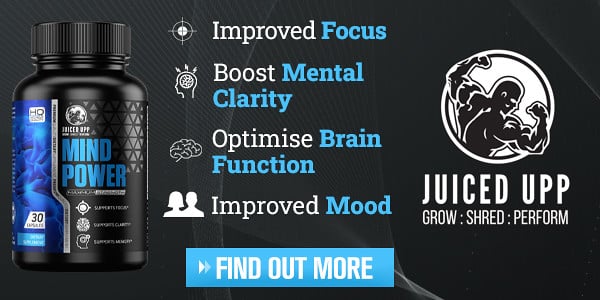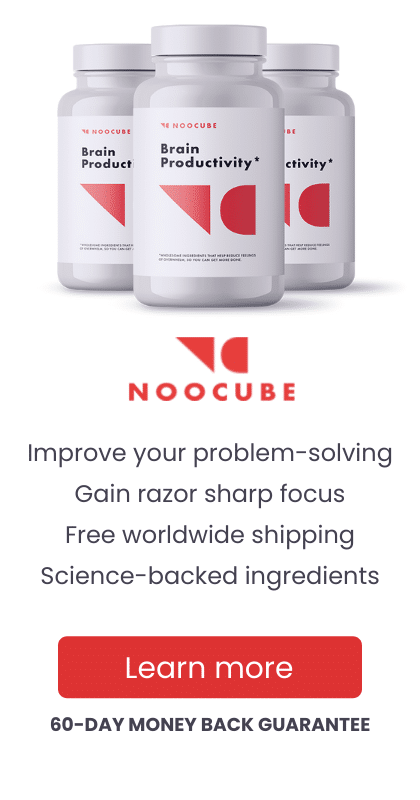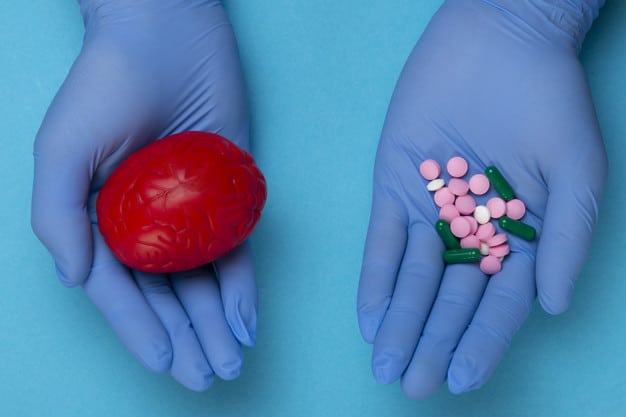Agmatine Sulfate is the supplemental form of Agmatine. Agmatine, on the other hand, is a very common chemical found in animals, plants, and bacteria. Even humans naturally produce this compound from an amino acid known as L-Arginine. The chemical acts as a neurotransmitter found in neurons. According to some scientists, the chemical affects various parts of the brain. It interacts with different receptors to produce different effects. It has been linked to a number of health benefits ranging from cognitive enhancing benefits to improved athletic performance, enhanced mood, and stress relief. However, the research backing these effects is very minimal.
Supplements like this one have not been approved by the Food and Drug Administration for any medical uses. They are also unregulated, which means you can easily buy them from online and other stores, but the quality of the compound may vary from one vendor to another.

Working Mechanism
Scientists have put across several possible working mechanisms of Agmatine. According to some data, the nootropic interacts with several enzymes that play a key role in the production and functioning of Nitric Oxide. Research suggests it inhibits two enzymes, iNOS, and nNOS. iNOS is involved in the production of Nitric Oxide to support the immune system. However, at high levels, it can trigger inflammation, which can lead to serious medical complications. It prevents this by inhibiting iNOS.
nNOS, on the other hand, supports the communication of neurons, but at high levels, it prevents the growth and repair of neurons, which can lead to neurodegenerative issues. This partly explains why supplements are said to be a possible solution for neurodegenerative disorders like dementia.
Finally, Agmatine increases eNOS enzymes, which facilitate the vasodilation of blood vessels. This increases the flow of blood, ensuring that cells and tissues are getting sufficient oxygen and nutrients. It also helps to lower blood pressure.
It is also known to affect other parts of the brain. For instance, some trials report that it blocks NMDA receptors to fight neuron damage and death caused by glutamate toxicity.
Agmatine also prevents the learning neurotransmitter acetylcholine from binding to nicotinic acetylcholine receptors. Agmatine binds to these receptors hence allowing your brain to make use of acetylcholine.
Animal studies also show it can increase beta-endorphins by activating imidazoline receptors. An increase in beta-endorphins improves one’s response to stress, fear, and pain.
These are just but a few of the suggested mechanisms of action of this chemical. It's critical that you understand the chemical has only been tested in animals and cells. Therefore, its full effects on humans are still not 100% understood.
Uses and Benefits
According to the preliminary data we have at the moment, Agmatine Sulfate may be useful for the following conditions:
- Mental Health
From animal studies, it was seen to improve subjects' responses to stress, anxiety, and depression. These effects have not been studied in humans, so we don't know whether the drug can produce similar results in adults with the same conditions.
It is said to be effective for these conditions by boosting adenylate cyclase levels in the prefrontal cortex of animals. Low levels of this enzyme have been linked to depression, so it helps prevent it by increasing the enzyme.
In addition to that, Agamatine increases NRF2 to protect the brain cells against cortisol.
- Pain
Agmatine may decrease hypersensitivity to pain. In some animal studies, the chemical reduced neuropathic pain by blocking NMDA receptors and inhibiting the activation of nitric oxide synthase.
The effectiveness of the drug for pain management in humans remains unknown since the drug has not been subjected to any reliable clinical trials. Therefore, it’s best to consult a physician before using agmatine sulfate for this purpose.
- Brain Health
It could be a potential treatment for the symptoms of Alzheimer's disease, seizures, stroke, and nerve damage. It can also prevent these conditions.
Agmatine sulfate is believed to be effective for Alzheimer’s disease because it fights the buildup of plaque and neurofibrillary tangles by improving insulin signaling.
For seizures, agmatine sulfate was seen to be effective in mice where it blocked NMDA receptors, which have been linked to the condition.
It also improves nerve repair and growth by inhibiting nNOS.
None of these benefits have been confirmed in human trials, so consume this data with a grain of salt.
- Muscle Growth
In one animal trial involving rats, Agmatine stimulates the secretion of Luteinizing Hormone, increasing the production of testosterone. Testosterone plays a vital role in the growth of lean muscle mass, fat loss, sex drive, and other body functions.
Agmatine also improved insulin sensitivity and glucose uptake in the muscles.
This explains why agmatine sulfate has been linked to improved athletic performance.
Other possible uses of agmatine sulfate include:
- Treating inflammation
- Easing alcohol and morphine withdrawal
- Treating atherosclerotic lesions (hardening of arteries)
- Weight management
- Improving insulin sensitivity
- Treating symptoms of herniated disc
- Treating psychiatric conditions like Schizophrenia
Side Effects
Agmatine can produce side effects like:
- Nausea
- Vomiting
- Diarrhea
- Stomach upset
It should not be used with alcohol as it increases the risk of getting ulcers. To avoid drug interactions, consult a licensed physician before taking agmatine sulfate if you are already using other medications.
Pregnant and breastfeeding women should avoid it.

Dosage
There are no official dosages. The appropriate dosage could vary depending on the condition you are treating, your age, and health status. For instance, to treat neuropathic pain, dosages between 1 and 2.5g per day were used in most studies.
Consult a licensed medical practitioner for a more appropriate dosage guideline. They will also help you identify other possible alternatives to agmatine sulfate.
References
- https://www.ahajournals.org/doi/full/10.1161/circulationaha.105.602532
- https://pubmed.ncbi.nlm.nih.gov/12543244/
- https://www.nature.com/articles/s41598-019-49078-0














